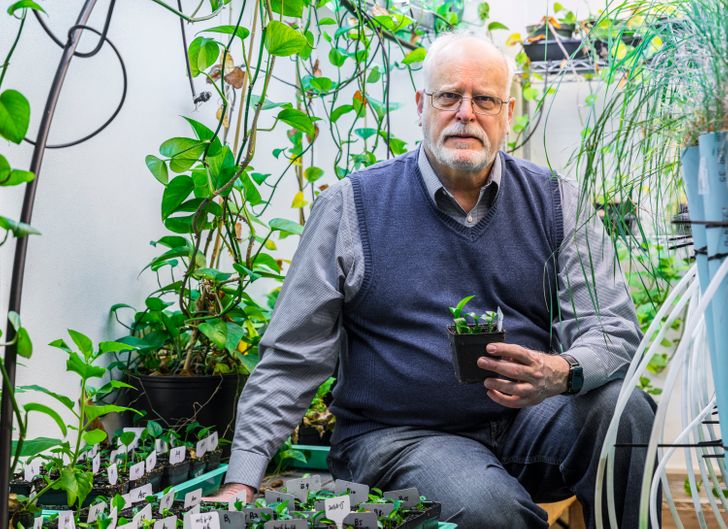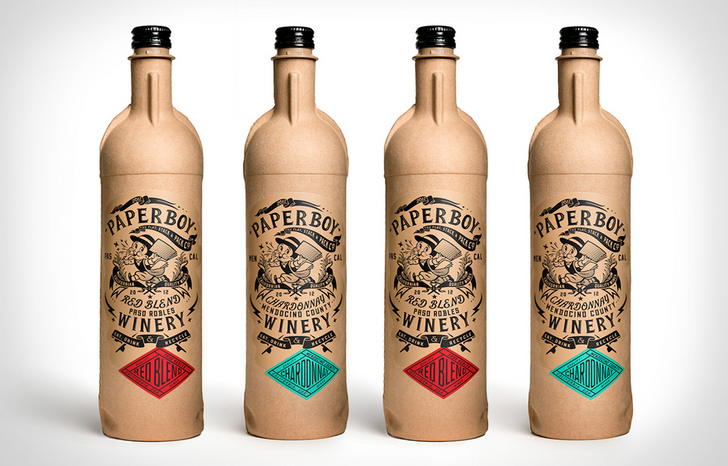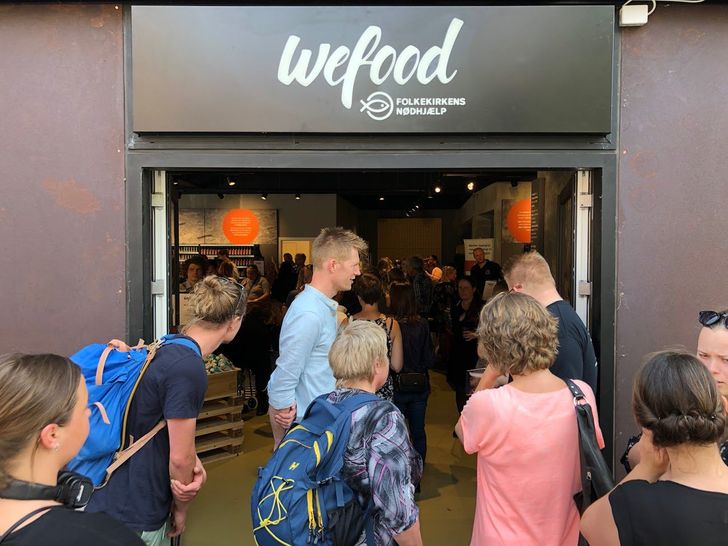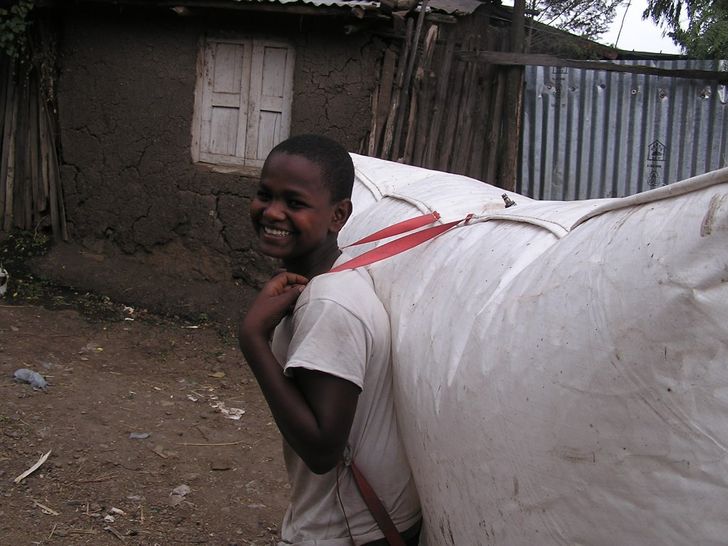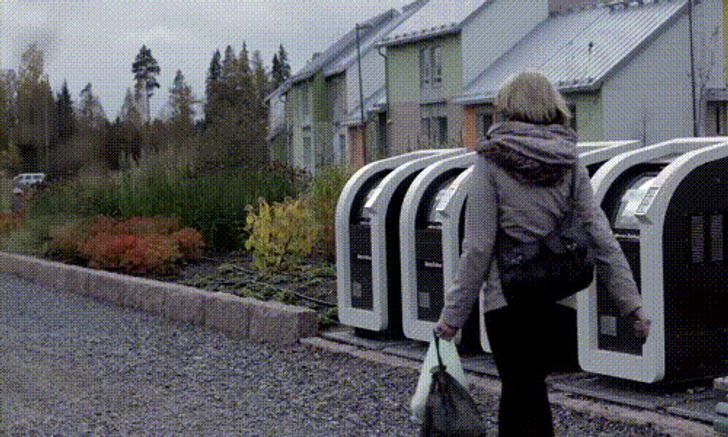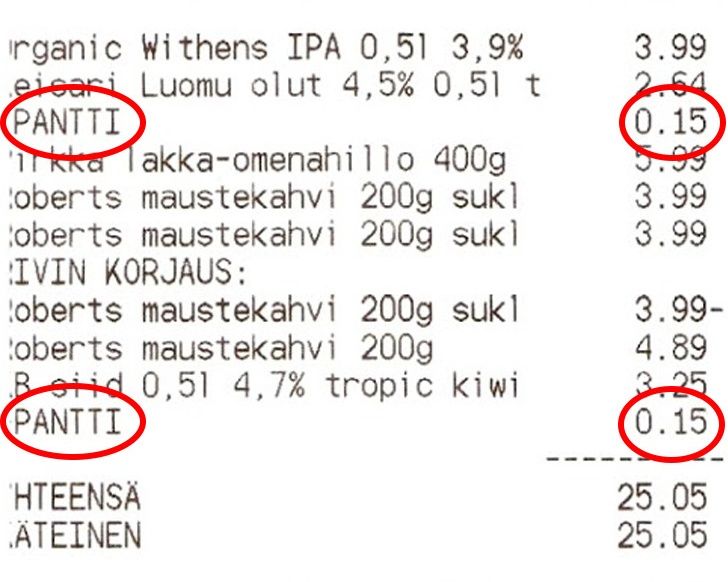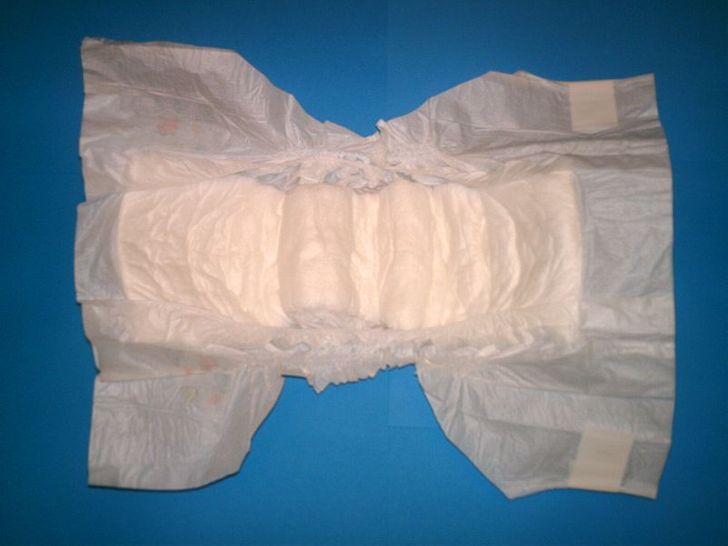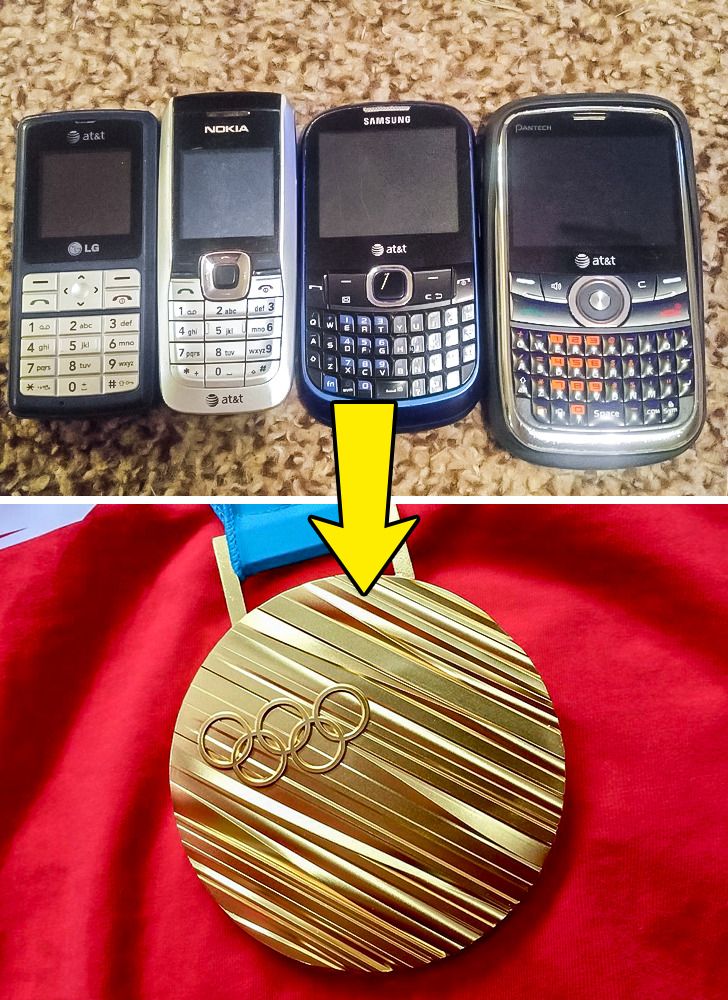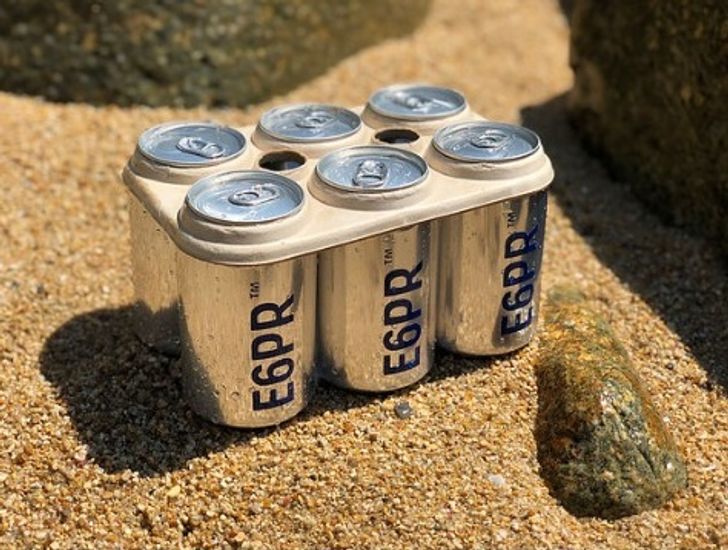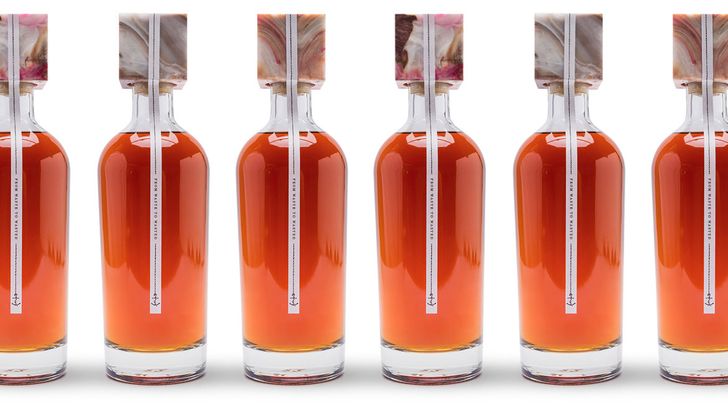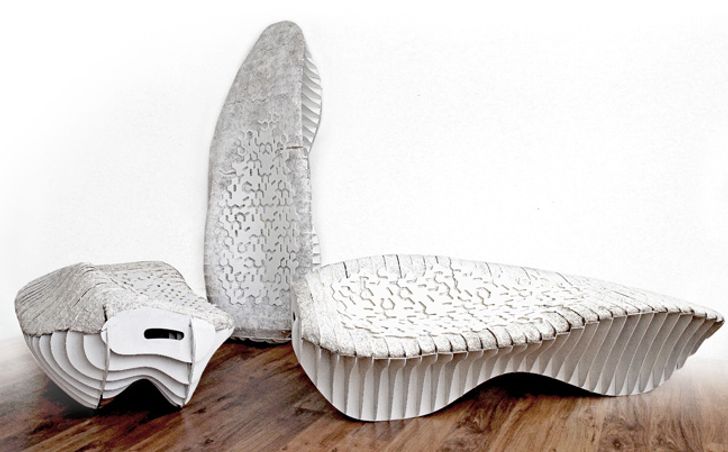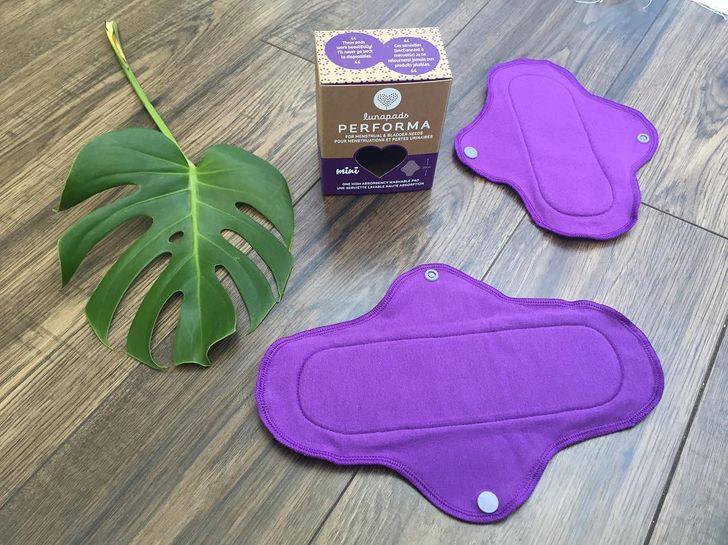I think such stores like described in #10 have to open all around the world, especially in developed countries. We waste so much food, we don't even think about it.
12 Heartening Examples That Show How We Can Save Planet Earth
The problem of environmental pollution is one of the most challenging issues today. Improper means of fighting against waste has resulted in the pollution of our oceans and rivers, ecosystem destruction, and animal extinction. But if we unite and start doing at least something to improve our ecology, we might still have a chance to protect our wonderful planet.
Bright Side encourages you to have a look at these ecology projects aimed at saving our planet. We hope they’ll inspire you.
12. Genetically modified plants that clean the air
The researchers at Washington University have developed a unique method involving plants that can clean the air. Due to the high pollution level in the cities, many people suffer from allergies and other diseases. In this case, filter houseplants can help. The team decided to use a gene that is present in all mammals and transplant it into Epipremnum aureum plants. This gene turns some chemicals into carbon dioxide, thus, the plant cleans the air effectively. Genetically modified plants show great results: in 8 days, they reduced the amount of benzene by 75% and in 6 days, chloroform was completely removed from the room. These plants have only been around since the winter of 2019, but the creators already want to start selling them.
11. A cardboard bottle instead of a glass bottle
Justin Murray has patented a bottle made from recycled cardboard. It can be used for wine, milk, and so on. This production method is less expensive and less harmful for the environment since the recycled cardboard decomposes within a few months, while glass is almost eternal.
10. A second chance for surplus goods
The problem of irrational product use is really important. WeFood store owners have decided not to just throw surplus products away, but to give them a second chance. WeFood buys products with an upcoming expiration date, products that look bad, and products with damaged packaging, and sells them at up to a 50% discount. As of now, there are 2 of these stores in Denmark, and they’re really popular.
9. Portable bags with biogas
German company (B)energy produces biogas from manure and organic wastes. This alternative is really good for people who live in places where they have no access to traditional sources of energy or the access is limited. Gas is generated inside special reactors, then it’s transferred to special bags, which weigh 9 lbs. These bags are easily transported and one bag is enough to make a gas burner work for 4 hours.
8. Finnish waste containers
In Finland, waste sorting starts at home: near houses, there are different containers for different types of waste. There are also drop-off centers and the temporary holding of materials like paper, cardboard, glass, metal, plastic, batteries, and motor oil. In parks, streets, and stores, there are also garbage bins for different types of trash.
7. A package refund
In many European countries, a customer pays for a product and its packaging as well. This packaging can be returned, and the sum paid for it will be refunded. On your receipt, in the Pantti line, you can always see the sum that can be refunded.
6. Turning diapers into clean energy
ARN, a waste treatment plant in the Netherlands, is planning to build a facility for diaper recycling. With the help of a reactor that is heated to 480°F, diapers will turn into a liquid and break down into different materials. A high temperature will destroy all viruses and bacteria, and the recycled product will be ecologically safe. Diapers will be recycled into an eco-friendly gas, plastic, and biomass. This will allow them to be used instead of coal.
5. 2020 Olympic medals made from electronic waste
The Tokyo Organizing Committee of the Olympic games asked Tokyo citizens to donate all of their unused electronic devices. All precious metals will be used to make Olympic medals. The target for bronze — 5,950 lbs — was met in June 2018. As of today, they have collected 7,720 lbs of silver out of the 9,020 lbs that they need, and 60 lbs of gold out of the 65 lbs they need. The project will be finished on March 31, 2019.
4. Biodegradable 6-pack rings
According to ecologists, plastic (especially plastic beer 6-pack rings) kills around one million sea birds and 100,000 sea mammals a year. SaltWater Brewery from Florida has created a new type of 6-pack ring that is made from wheat and barley stalks, not plastic. These rings decompose fast both in soil and water and won’t harm animals if they swallow them.
3. Caps from recycled Coca-Cola labels
Fitzroy has created another way to produce less plastic. They recycle Coca-Cola labels and make caps for their rum bottles. These caps look as if they were made from marble.
2. Furniture made from mushrooms
Тerreform has developed a Mycoform surface system to create furniture from mushrooms. The internal filler is made up of mycelia substrate, discarded wood chips, gypsum, and oat bran, which is then consumed by the mycelia and hardened into a tough, durable material. The external skin is a bacteria cellulose and a mycelia substrate. They integrate to become a hard biopolymer that is suitable for architectural applications. At the end of the useful product life cycle, Mycoform can be composted and safely reintroduced back into the environment, where it can be naturally biodegraded.
1. Reusable sanitary pads
The history of sanitary pads is really long and full of good and bad ideas. Considering the problem of a huge amount of used female hygiene items, Lunapads has decided to develop reusable sanitary pads. They’re easily attached to underwear with special buttons. After using, they can be washed in cold water, dried, and used again. The manufacturer claims that these pads provide natural air ventilation so that they don’t cause any irritation or fungal infections. Lunapads can be used for around 3-5 years and cost around $10-15. You can even buy a set so that you don’t need to wash your pads very often.
Would you like to support any of these projects?
Comments
Lunapads also a major part of life conciseness. Do have a sale in online soon.
I like the idea of the diapers and the idea of the sanitary pads. I'd even like to buy some if I knew where...
I think you can check the Internet or order online! :)
But I like all the ideas.
Only a pair we would need a least 12 pack
A glass bottle can be culletized and used as another glass bottle.. it is the most recyclable packaging of all..
We food is NOT a new thing. There have been "Scratch and Dent" stores since the 70's
Related Reads
15 Times Strangers Stepped Up in Superheroes’ Shoes

A Woman Decided to Test Her Future Daughter-in-Law, but She Chose the Wrong Person to Mess With
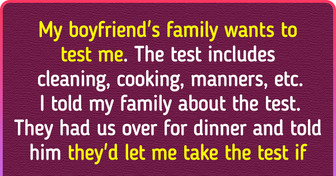
My Boyfriend Lost His Temper When He Found Out I’m a Landlord of the Building We Live In

I Refused to Be Humiliated Just Because I’m Poor
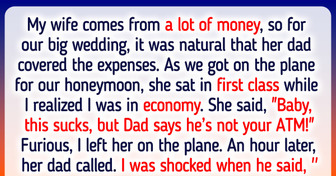
12 People Whose Jobs Ended in the Biggest Disasters
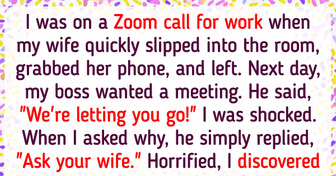
10 Thanksgiving Disasters That Turned Family Feasts Into Total Chaos
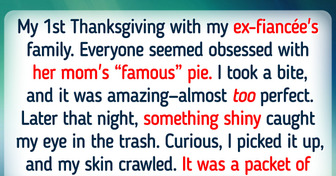
10 People Share Horror Stories They Discovered About Their Friends
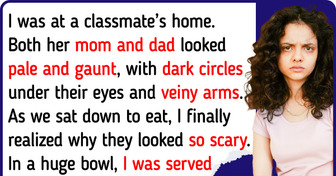
12 True Stories So Twisted They Feel Like a Film Noir
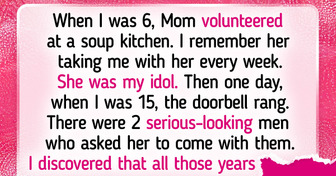
15 Witty Folks Who Know How to Hack This Life
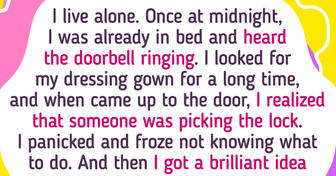
I Paid for My Seat, I’ll Recline It As Much As I Want

I Invited My Son’s Ex-Wife to Thanksgiving Dinner — It Ended Tragically

9 Moms Who’d Rather Forget Their Bank PIN Than Meet Their Daughter-in-Law

